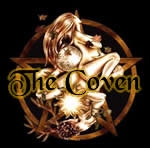
Wise Weeds Botanical Studies, Basic Aromatherapy Course enables students to develop their knowledge about and appreciation for the healing qualities of essential oils. Students also learn about the safety issues involving these products.
Practical Aromatherapy: Using Essential Oils for Healing expands on the concepts covered in this course and presents more historical, safety and research information as well.
We highly recommend that students purchase the kit of sample bottles of essential oils at the course's beginning, as they will use them from the very first lesson. The experiential part of this course is an integral part of the student's growing knowledge and comfort level with using essential oils.
In this course you will find the following information and more:
* An Introduction to Concepts of Learning
* The Term "Aromatherapy"
* Some of the Processes of Extraction from Plants
* What Plant Parts Contribute Essential Oils
* How Essential Oils Work
* Some Ways to Use Essential Oils
* Basic Safety Tips
* A Quick Reference of the Healing Properties of Essential Oils
Also, this course will discuss some of the properties and uses of the following essential oils:
* Lavender
* Sweet Orange
* Eucalyptus
* Patchouli
Introduction
As I've worked with people to create balance in their bodies through the use of herbs and other healing options, I've incorporated the use of essential oils into my healing practice more and more.
The very scent of essential oils soothes calms, awakens or otherwise affects individuals in very positive ways, regardless of whether or not they are even aware of aromatherapy as a practice.
Essential oils lend themselves to subtle types of non-threatening healing. Not all people are open to "alternative" therapies, but most enjoy pleasant smells.
Here in this course, you will learn a little bit about aromatherapy--the use of essential oils for healing, and why it works.
Remember, this class will merely put you on the road to learning about the therapeutic uses of essential oils. It is how you mark out your personal route on this map that will determine the true value of your journey in your life. Have confidence in yourself and the learning process. The most important suggestion I have for you right now is: keep your own journal of impressions. If all you do is plan to skim through these materials, you will miss the best and most fun part of this course--learning how much you already know about the effects of essential oils.
Learning is a process. Most of us, if we went to public or private school, were taught to value grades and "doing it right" more than actual knowledge and understanding. Oftentimes, independent thought or questions were discouraged, not rewarded. Well, I hope you can leave those types of educational concepts behind. Avoid being intimidated if this course is your first experience with dealing with an alternative healing topic. If some of the material seems vague, or does not give you enough information, please let me know.
By the same token, if you are very experienced with alternative therapies, please don’t be put off by any extended explanations of terms or concepts. Read the material thoroughly. I may mean something slightly differently by a term than your prior experience may lead you to believe.
I'm a strong believer in repeating concepts and information more than once and in slightly different manners that way our brains can process the information (and access it in the future) in a more comprehensive manner. This is kind of like filing folders in more than one file cabinet drawer Or keeping a written record, as well as data on a disk.
For a long time I hesitated to produce an online or correspondence course because people learn in so many ways, not just through written communication. In fact, most people are not aware of how they best learn something. Consider the following;
If your learning pattern indicates you learn better by hearing the spoken word, for example, you may want to purchase or borrow a tape recorder. You could then read each section onto a tape and then play it back for better comprehension.
If you're working in a group, individuals could take time and read the sections aloud to one another.
If you're one of these people who learn best by hands-on work, you'll benefit greatly from the essential oils.
One of the more important communications concepts I've learned from someone who struggles with dyslexia, and being a mother to a child who was just learning about the world, is, don't take anything for granted. Question. Question. Question. If something is not clear, make sure you understand it.
It's smart to ask questions when you don’t know something. That's not something that many of us were encouraged to be aware of when we were in school quite the opposite, by my recollection. Most kids (and then adults in the corporate world) tried to look like they knew everything. Otherwise, people would think they were "dumb" or "stupid."
It took me years to learn how foolish that approach to learning and knowledge is.
Remember, the only stupid questions are the ones you don't ask. But also remember, I don't know everything, and I may tell you just that!
Just as herbalists learn to keep a record of how various herbs affect them, their friends, families and clients, so, too, should you keep your own materia medica of essential oils and their applications and effects.
While I will give you my impressions of certain essential oils, you will want to build on that knowledge, using it as a foundation, not as the sum total of your learning.
Although you may get the impression from this course, and modern books on aromatherapy, that aromatherapy has been scientifically validated and proven to work, that is really an incomplete impression.
Aromatherapy remains an extremely young art form. There are so many variables that come into play as to the effectiveness, efficacy and safety of essential oils used for healing. While it is important to draw upon the experiences and experiments of those who have gone before us, it is equally valid, in my opinion, to note what results that we, as individuals exploring alternative healing, obtain.
Am I suggesting that you ignore all of the work of those who have gone before you? Certainly not but I am suggesting that you open yourself to noting how you, and others around you, respond to essential oils. Hopefully, this course will enable you to do just that.
When you sample an essential oil, you must keep notes. Do not rely on your memory. First impressions of an essential oil can be fleeting.









































2 comments:
Thanks for sharing these useful information! The contents are very good and very informative.
Essential Oils
Post a Comment